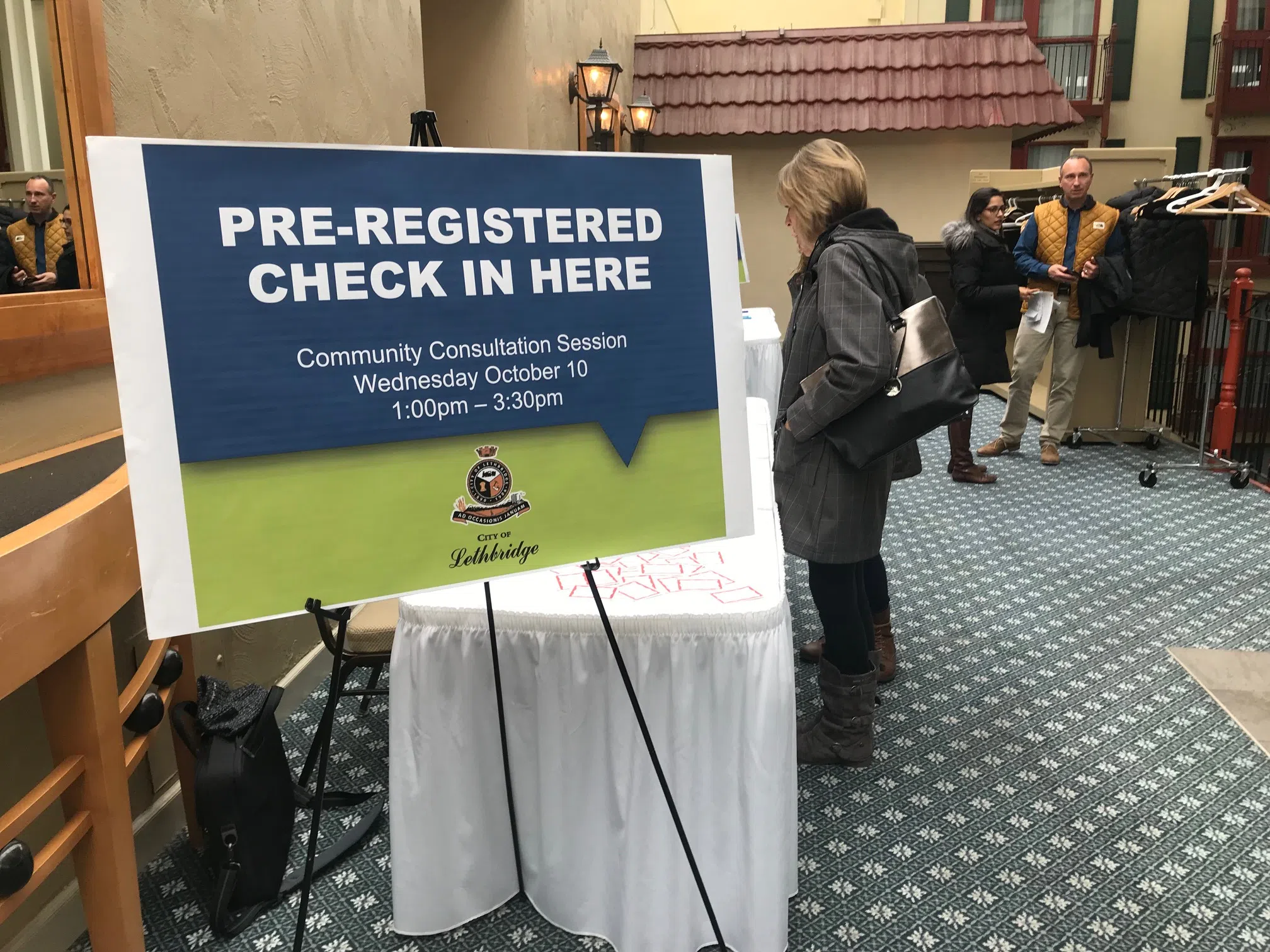
Hundreds take part in Lethbridge Community Drug Crisis meetings
LETHBRIDGE – A series of meetings hosted by the City of Lethbridge, meant to elicit constructive feedback, experiences, varying view points and potential ideas to at least temporarily manage some of the drug-related issues facing the community, have so far been well attended.
The first meeting, held Wednesday afternoon at the Lethbridge Signature Sandman Lodge on Scenic Drive, was attended by the maximum 80 participants, while a second meeting held the same evening was attended by more than 50 others.
Thursday’s afternoon meeting was full, while dozens of others were pre-registered for the evening session.
The meetings themselves were conducted in a small, round-table format, with a facilitator posing several questions including “What has been the impact of the drug crisis on you?” Discussions around the tables ranged from the impact local business owners are experiencing most days, to those who have lost loved ones to overdoses, frustration over the lack of many follow-up services to treat addicts or give them a place to go after they use, workers experiencing “burnout” dealing with the drug crisis, and those who were simply curious about what solutions may be thought of in the short and longer term.


